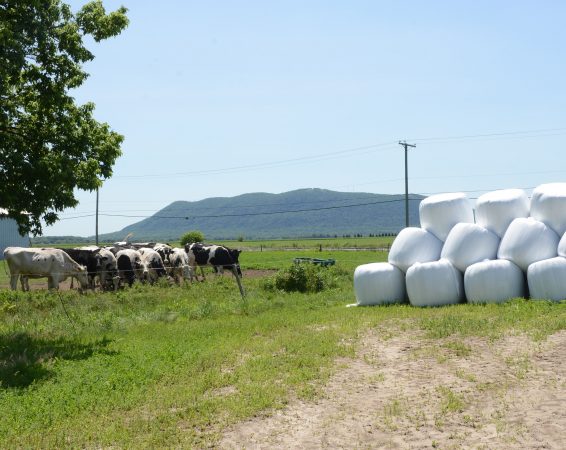
Three-year Cleanfarms project focusing on improving Ag plastic recycling
By PLANT STAFF
Industry Food & Beverage agriculture Cleanfarms plastic recycling SustainabilityCleanfarms project is examining how plastic wrap and other used materials can be recovered for recycling.

Farmers with livestock commonly preserve hay and silage in plastic wrap. Though a beneficial farm tool, the plastic requires end-of-life management. This Cleanfarms project is examining how plastic wrap and other used materials can be recovered for recycling.
– Cleanfarms photo (CleanFARMS Inc.)
ETOBICOKE, Ont. — A multi-year initiative that is helping to recover and recycle plastic used on farms will ramp up this fall, providing more Canadian farmers with opportunities to manage plastic waste.
The project, funded by Agriculture and Agri-Food Canada’s Canadian Agricultural Strategic Priorities Program (CASPP), has been developed and is being executed by Cleanfarms, a non-profit industry stewardship organization that has programs in place across Canada to recover and manage non-organic farm waste for recycling or environmentally responsible disposal.
Entitled ‘Building a Zero-Plastic Waste Strategy for Agriculture’, the project has three objectives:
- to build consensus on the appropriate management of non-organic agricultural waste;
- to survey farmers to establish current patterns of disposal before and after pilots and education programs; and
- to demonstrate best practices in ag waste management through pilot programs conducted throughout Canada.
“We know farmers want more opportunities to manage agricultural waste materials in an environmentally responsible manner,” said Cleanfarms executive director Barry Friesen. “This project will identify additional options for farmers and agricultural suppliers to incorporate sustainability practices more broadly in their daily operations.”
Canadian agriculture currently uses about 40,000 tonnes of plastics annually in the process of growing crops and raising livestock, most of it in plastic containers, grain bags, twine and bale/silage film. Though plastic is essential throughout the farming industry, managing the end of lifecycle of plastics is a big challenge that requires forward-thinking solutions.
Other Cleanfarms programs include a national program to collect non-deposit bulk pesticide totes and drums; a national program to collect and properly dispose of unwanted agricultural pesticides and old, obsolete livestock/equine medications; grain bag recycling under a provincially-regulated program in Saskatchewan and pilot programs in Manitoba and Alberta; and seed and pesticide bag collection for proper disposal in eastern Canada with the addition of fertilizer bags in Quebec.
According to a statement, these programs collect about 5,000 tonnes of agricultural plastics for recycling each year, and that number is growing rapidly with the more recent addition of grain bag collection programs.
